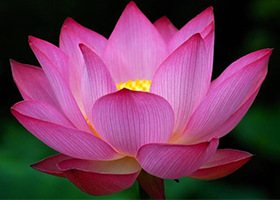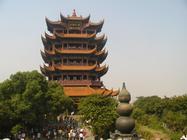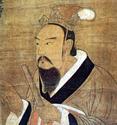Culture
-
Emperor Taizong's Rule in the Tang Dynasty Versus Today's Communist Regime
2014-07-19 Zizhi Tongjian (History as a Mirror) recorded several stories about Emperor Taizong of the Tang Dynasty. When one compares the ancient stories with China's current situation, one may well reflect on why China is now on a moral downslide.
Zizhi Tongjian (History as a Mirror) recorded several stories about Emperor Taizong of the Tang Dynasty. When one compares the ancient stories with China's current situation, one may well reflect on why China is now on a moral downslide. -
Qin Shubao, Brave and Fierce Warrior of the Tang Dynasty
2014-02-22 Serving initially as a young soldier of Sui dynasty, Qin Shubao came to the attention of his military general with his fierceness in the battles and integrity in his service. He was soon promoted as a commander of a small squad.
Serving initially as a young soldier of Sui dynasty, Qin Shubao came to the attention of his military general with his fierceness in the battles and integrity in his service. He was soon promoted as a commander of a small squad. -
Wei Zheng, the Impartial but Blunt Advisor of Emperor Taizong
2014-02-08 Wei Zheng (AD 580-643), an orphan and eager reader since childhood, spent a few years in a Taoist temple due to poverty. Later he served the arch rivals of Shimin Li (later Emperor Taizong of the Tang dynasty), but Shimin Li appreciated Wei Zheng’s knowledge and courage so much that he not only pardoned him but also promoted him to be his close advisor when he became the emperor.
Wei Zheng (AD 580-643), an orphan and eager reader since childhood, spent a few years in a Taoist temple due to poverty. Later he served the arch rivals of Shimin Li (later Emperor Taizong of the Tang dynasty), but Shimin Li appreciated Wei Zheng’s knowledge and courage so much that he not only pardoned him but also promoted him to be his close advisor when he became the emperor. -
Zhangsun, the Caring, Tolerant and Wise Empress
2014-01-31 The stereotype images of empresses and imperial concubines in ancient China are always territorial, brutally fighting for emperor’s favour and court power. Contrary to this, Empress Zhangsun (601-636), the wife of Emperor Taizong of the Tang Dynasty, distinguished herself for playing an admirable independent role for the emperor’s governing.
The stereotype images of empresses and imperial concubines in ancient China are always territorial, brutally fighting for emperor’s favour and court power. Contrary to this, Empress Zhangsun (601-636), the wife of Emperor Taizong of the Tang Dynasty, distinguished herself for playing an admirable independent role for the emperor’s governing. -
Thoughts on Greed from Ancient History to Contemporary China
2013-12-31 The Chinese character for greed consists of two parts: one means “now” and the other is “treasure.” This denotes the deep meaning of this character, that is, by collecting excessive fortune now, a person will pay the price at a later time.
The Chinese character for greed consists of two parts: one means “now” and the other is “treasure.” This denotes the deep meaning of this character, that is, by collecting excessive fortune now, a person will pay the price at a later time. -
Two Ancient Stories of Honouring Teachers
2013-02-15 The emphasis of discipline and showing respect to one's teacher are traditional values found in ancient Chinese culture, and such sayings as “A teacher to a student is like a father to a son,” and “A teacher even for one day should be respected as a father forever” were common. A student looks to his teacher as a profound person akin to his father, thus calling him “gracious teacher” or “master”.
The emphasis of discipline and showing respect to one's teacher are traditional values found in ancient Chinese culture, and such sayings as “A teacher to a student is like a father to a son,” and “A teacher even for one day should be respected as a father forever” were common. A student looks to his teacher as a profound person akin to his father, thus calling him “gracious teacher” or “master”. -
Traditional Culture: The Potter Yu Shun Influenced the Land of Dongyi
2013-02-04 Yu Shun was one of the Five Emperors of China in ancient times. His family name was Yao, and his given name was Chonghua. He was from the area where the current Zhucheng City in Shandong Province is located. Emperor Shun was very talented and noble. Even at a very young age, he had become well known for his devotion to his family.
Yu Shun was one of the Five Emperors of China in ancient times. His family name was Yao, and his given name was Chonghua. He was from the area where the current Zhucheng City in Shandong Province is located. Emperor Shun was very talented and noble. Even at a very young age, he had become well known for his devotion to his family. -
A Business Model Based on Morality
2013-01-11 Many business models exist in our current society. Some stress innovation, ways to compete, utilizing a variety of channels, studying minute details, execution efficiency, proper organization, quickness in handling, etc. The purpose of these models is to quickly build wealth in the face of steep competition. In such environments, can people with high moral standards be successful? The answer is “yes.”
Many business models exist in our current society. Some stress innovation, ways to compete, utilizing a variety of channels, studying minute details, execution efficiency, proper organization, quickness in handling, etc. The purpose of these models is to quickly build wealth in the face of steep competition. In such environments, can people with high moral standards be successful? The answer is “yes.” -
Traditional Chinese Culture: By Doing Good We Benefit Ourselves
2012-12-28 An old saying advises, “Doing good deeds without seeking repayment will inspire others to be compassionate and resolve your own tribulation; helping people in need will help them accumulate money to do good deeds and you will receive help from others."
An old saying advises, “Doing good deeds without seeking repayment will inspire others to be compassionate and resolve your own tribulation; helping people in need will help them accumulate money to do good deeds and you will receive help from others." -
Traditional Chinese Culture: The Courage to Stand on the Side of Truth
2012-12-21 "A benevolent man worries not, a learned man is not perplexed, and a brave man fears not," Xianwen said. Courage is an essential virtue for establishing a perfect realm. Historical records speak of many courageous people in both Western and Chinese cultures.
"A benevolent man worries not, a learned man is not perplexed, and a brave man fears not," Xianwen said. Courage is an essential virtue for establishing a perfect realm. Historical records speak of many courageous people in both Western and Chinese cultures. -
Traditional Chinese Culture: Emperor Qin Shi Huang (Part 2)
2012-12-07 In ancient Chinese folk lore, people associated Qin Shi Huang with ruthless tyranny. Emperors were advised by scholars not to take him as an example, though none of this advice was heeded. At the same time, a number of scholars have held a rational understanding of the historical role of Qin Shi Huang.
In ancient Chinese folk lore, people associated Qin Shi Huang with ruthless tyranny. Emperors were advised by scholars not to take him as an example, though none of this advice was heeded. At the same time, a number of scholars have held a rational understanding of the historical role of Qin Shi Huang. -
Traditional Chinese Culture: Emperor Qin Shi Huang (Part 1)
2012-11-30 Emperor Qin Shi Huang is widely respected as the first emperor of a united China. He was born during the Warring States period (475 B.C. to 221 B.C.) and faced many obstacles. His rise to power is a great legend in Chinese history.
Emperor Qin Shi Huang is widely respected as the first emperor of a united China. He was born during the Warring States period (475 B.C. to 221 B.C.) and faced many obstacles. His rise to power is a great legend in Chinese history. -
Traditional Chinese Culture: Legend of the Yellow Crane Tower
2012-11-23 The Yellow Crane Tower is one of the Four Great Towers in China. It stands along the Yangtze River and overlooks Wuhan City in Hubei Province. Many poets, including Cui Hao and Li Bai, have written famous poems about the tower. Legend has it that the tower was built in honour of a Taoist immortal.
The Yellow Crane Tower is one of the Four Great Towers in China. It stands along the Yangtze River and overlooks Wuhan City in Hubei Province. Many poets, including Cui Hao and Li Bai, have written famous poems about the tower. Legend has it that the tower was built in honour of a Taoist immortal. -
Traditional Chinese Culture: China’s First Monk Emperor, Wu of Liang
2012-11-16 Emperor Wu of Liang (464-549), also called Xiao Yan, was born at Nanlanling Zhoudouli during the Southern dynasties (420-589). Xiao Yan reigned for 48 years and died at the age of 86. He was one of the longest living emperors in Chinese history, second only to Qing Dynasty emperor, Qianlong (1711-1799).
Emperor Wu of Liang (464-549), also called Xiao Yan, was born at Nanlanling Zhoudouli during the Southern dynasties (420-589). Xiao Yan reigned for 48 years and died at the age of 86. He was one of the longest living emperors in Chinese history, second only to Qing Dynasty emperor, Qianlong (1711-1799). -
Traditional Chinese Culture: The Legend of the Red Packets
2012-11-13 According to a legend, there was a fearsome demon called “Sui.” Every year on New Year's Eve, the demon would come to touch a sleeping child's head three times. Out of fear, the child would cry loudly, then he would get a headache, fever, and begin babbling incoherently. When these symptoms disappeared, the child would become a fool.
According to a legend, there was a fearsome demon called “Sui.” Every year on New Year's Eve, the demon would come to touch a sleeping child's head three times. Out of fear, the child would cry loudly, then he would get a headache, fever, and begin babbling incoherently. When these symptoms disappeared, the child would become a fool.



 more ...
more ...